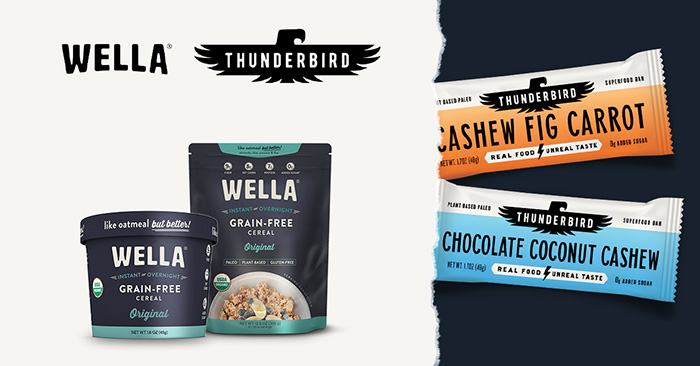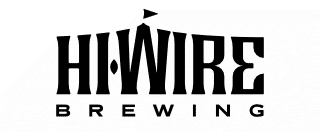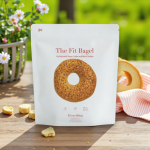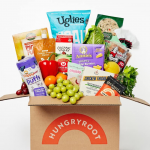Wella Foods Acquires Nutrition Bar Maker Thunderbird to Expand Growth, Awareness

Lockhart, Texas-based better-for-you food manufacturer Wella Foods announced last week that it has acquired Austin-based nutrition bar company Thunderbird. Financial terms of the deal were not disclosed.
“I think what’s beautiful about both of our brands is [that they’re] real food made into something that’s as close to its natural state [as possible],” said Wella Foods CEO Deborah Nease. “We’re in a great spot because there’s a growing demand for real foods that taste great.”
Launched in 2011 by triathletes Katie and Taylor Collins, Thunderbird produces a line of whole-food energy bars. Currently available in seven flavors – Chocolate Almond Butter Sea Salt, Chocolate Coconut Cashew, Hazelnut Coffee Maca, Cashew Fig Carrot, Pecan Goji Pistachio, Texas Maple Pecan and Cherry Hemp Turmeric – the products can be purchased online for $29.99 per 12-pack or at more than 2,300 doors nationwide including Whole Foods, Sprouts, Streets Market and more.
Cameron Smith, Thunderbird’s first and largest investor, purchased the bar company from the Collins for an undisclosed amount in 2014 when the duo turned their attention to their other brand, EPIC Provisions. Though he and the founders wanted to focus on EPIC, they also felt Thunderbird filled an important niche in the bar market by crafting interesting culinary flavors utilizing natural ingredients and no added sugar.
At its “pinnacle,” Thunderbird had six full-time employees, Smith said. When the brand scored a Whole Foods global expansion in February 2020, he realized it was time to consider bringing in some reinforcements.
“It was obvious from my investment activities in a bunch of other brands that we needed a partner, we needed to scale and this was too much with a small team to have a national footprint and be successful over a long period of time,” said Smith,
Enter Wella Foods. Smith contacted the company in 2022 seeking a new co-packer and, as Wella had experience in the bar set and has the “exact same food philosophy,” the partnership was a natural fit. That move coincided with Wella’s decision to shift to a shelf-stable format of its bars in response to falling category sales in the refrigerated set and a multitude of supply chain issues in relation to perishable products, according to Wella Foods founder and CEO Deborah Nease. The brand currently offers shelf-stable nut butter bars, collagen bars, superfood bars, super omega squares, and grain-free cereal.
“We made the decision to innovate our way out of it, one of the things we were looking at was creating a shelf-stable version of our bar,” explained Nease. “We were already sort of in development thinking about it because we wanted something we could grow e-commerce around.”
Even with the expanded assortment Wella Foods had extra capacity available at its 40,000 sq. foot facility and was looking for more ways to diversify its revenue.
“We had extra capacity so we were open to co-packing [for other brands]. We make bars, the only real difference was a few of the ingredients, [but] most of them we had in-house,” said Nease. “So it really was the stars aligning.”
She said the acquisition of Thunderbird was the next “natural step” following the successful co-packing relationship.
Looking ahead, Wella Foods will focus on growth in the natural channel for its shelf-stable Wella brand and in the conventional channel for Thunderbird. Additionally, the parent company has several other better-for-you indulgent snack brands slated to come to market later this year.
“Not only do the brands’ go together well, but there’s that vertical integration, because I think the market’s more competitive now,” said Smith. “And I think you have to be faster in terms of your innovation pipeline and doing custom things as well.”

















